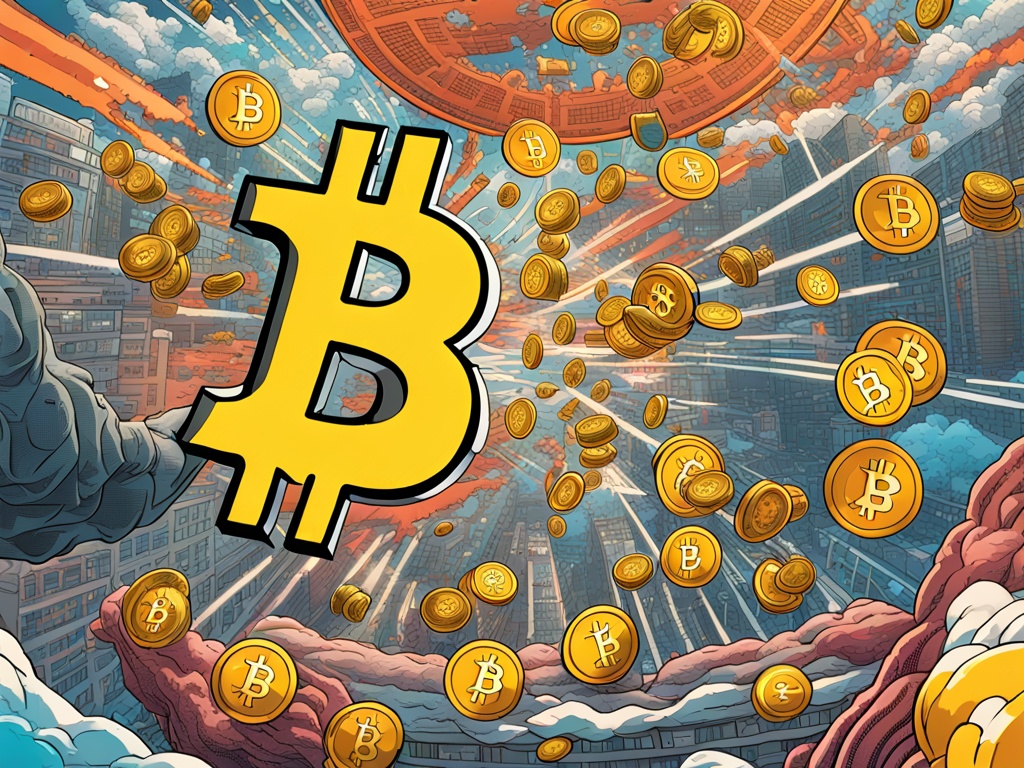Is Bitcoin Really Backed? A Deep Dive into Value and Perception
Hey there! So, the crypto world is buzzing again, especially with some pretty bold statements coming from certain figures in the industry. Recently, a Japanese entrepreneur, Koji Higashi, took a shot at the critics who argue that Bitcoin isn’t backed by anything of value. His comments have stirred quite a discussion, and honestly, they hit home for me when thinking about the current state of currencies and what we perceive as “value.” Let’s dive deep into this!
Key Takeaways:
- Bitcoin’s backing is questioned in comparison to fiat currencies like the Japanese yen.
- Higashi’s perspective reflects rising concerns over Japan’s economic stability.
- The debate about the political and corporate influence on cryptocurrencies has intensified.
- Important distinctions are made about stablecoins and their redeemability.
Now, Higashi provocatively stated that the Japanese yen is "backed by hostages." What does he mean? Well, he argues that the everyday Japanese citizen—who struggles diligently through life, paying taxes and saving in yen—acts as a sort of "hostage" to the unstable economic systems in place. This perspective is quite eye-opening, and it raises an essential question: if fiat currencies are supported by the hard work (and suffering) of the populace, what makes Bitcoin less valid?
A Look at Quality of Life in Japan
Higashi’s comments also reflect the growing concerns about the quality of life in Japan, especially for retirees living on fixed pensions and workers dealing with stagnant wages. The cost of living keeps inching up, while wages are lagging—a struggle familiar to many globally. The erosion of life quality can lead to a feeling of helplessness, making Bitcoin appear more attractive as an alternative financial option.
As a young guy in the crypto space, I think we need to acknowledge these sentiments. When traditional financial systems start to feel like they’re failing us, people instinctively look for something else, something that feels decentralized and less susceptible to external control—like crypto.
Countering the Co-Opting Questions
Higashi’s comments also touched on the idea of political co-optation in crypto. This is a big topic! There’s a growing apprehension that major cryptocurrencies might be influenced or manipulated by powerful entities. For instance, Bitcoin was originally imagined as a decentralized finance system, giving power back to the people. But today, it raises eyebrows when market shifts seem controlled or are influenced by big players.
Roger Ver, a known advocate for Bitcoin, even pointed out that the original ethos of Bitcoin might be fading, as it becomes “co-opted by powerful interests.” As an analyst, this is concerning. If the chains that should set us free are instead becoming shackles in disguise, where does that leave us?
Understanding Stablecoins and Their Value
Speaking of value, let’s not forget the role stablecoins play in this ecosystem. There’s been quite a debate about Tether and its claims of being “redeemable.” Some folks argue it’s a safe harbor amidst the volatility, while others raise valid concerns about its backing—mostly in US dollars.
I’ve noticed many people use stablecoins as a bridge in and out of the crypto markets, especially to buy slower-moving stable assets. But the question of redeemability is crucial. If people lose trust in stablecoins because they aren’t fully backed, that could lead to a downward spiral of confidence in the broader market.
Road Ahead and Practical Tips for Investors
So, what does all this mean for you as a potential investor? Here are some practical tips:
-
Do Your Own Research: Anytime someone tells you about “backing,” whether it’s Bitcoin or fiat, dive deeper into the facts. Know the underlying mechanics.
-
Consider the Context: Look at the broader economic landscape—how are the currencies doing? How’s inflation? Are the fundamentals strong?
-
Stay Updated on Regulatory Changes: Governments worldwide are starting to pay more attention to cryptocurrency regulations. Be aware of policy changes that could affect your investments.
-
Diversify: Don’t put all your eggs in one basket. Spread your investments across various assets to hedge against volatility.
- Engage With Community Opinions: Join discussions or forums to gather different perspectives. Sometimes, hearing from seasoned investors can illuminate thoughts you hadn’t considered.
My Personal Insights
From my perspective, as a young Korean American in the crypto sphere, it’s thrilling yet daunting to navigate these ever-evolving discussions. I remember dabbling in Bitcoin when it was just a few thousand bucks. Now, the narrative has changed—it’s no longer just about price; it’s about value perception and legitimacy.
The thought of cryptocurrencies replacing traditional currencies excites me, but we have to keep our eyes open and our ears to the ground. If we don’t, we risk letting external forces dictate our financial freedom—something hard-fought and precious.
In closing, let me throw a thought-provoking question your way: as we ponder the nature of value—whether it’s fiat, crypto, or something else—how do we define what’s truly “backed”? What would it take for you to invest in a currency, knowing its backing is based on something far more intangible?





 By
By

 By
By

 By
By
 By
By